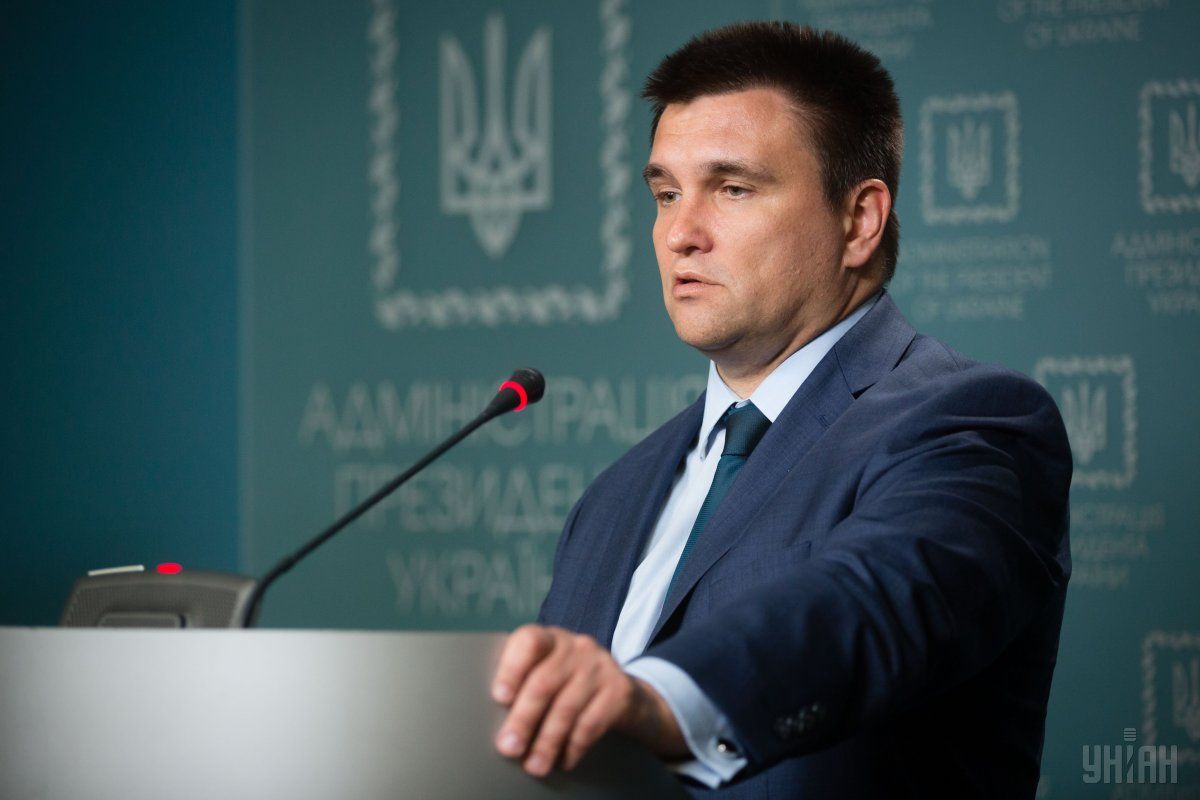
"The answer is definitely yes. It's the same approach towards the U.S.," he told reporters at the Halifax International Security Forum this weekend, discussing requests to both countries, reads the report.
As ABC News reported on Friday, the U.S. National Security Council approved sending a $47-million (U.S.) grant package for Ukraine to Congress that would enable the country to receive U.S.-made defensive weapons, including Javelin anti-tank missiles.
Ukraine, which saw the Crimean peninsula invaded and annexed by Moscow in 2014, has since been fighting a war with Russian-backed rebels in the eastern portion of its territory. The conflict has cost more than 10,000 lives and is reducing Donbas region, once a key part of Ukraine's industrial heartland, to an economic wasteland.
Mr. Klimkin says he believes there are more than 2,000 pieces of Russian hardware in eastern Ukraine, including armored vehicles, tanks and howitzer guns.
"We need more defense equipment from our friends and partners," he said.
"Any modern army should be capable of fighting the Russians."
Mr. Klimkin added the Ukrainians would like to acquire more electronic-warfare and countermeasure equipment, as well as further help with logistics and training.
Read alsoPressure builds on Canadian government to launch Ukraine peacekeeping mission – mediaThe Ukrainian envoy declined to discuss the contents of the proposed U.S. defense package, but said about the aid that "I believe they will make the right decision on that."
Canadian Defense Minister Harjit Sajjan, wrapping up the government-sponsored conference on security and defense topics in Halifax, did not directly answer a question on whether the Liberal government would provide such weapons to Ukraine.
More than 1.3 million Canadians, including Foreign Affairs Minister Chrystia Freeland, can trace their heritage to Ukraine, where Canada is currently training Ukrainian soldiers to fight the Moscow-backed rebels.
Canada, dating back to the former Harper government, has held off on providing defensive weaponry to Ukraine because the U.S. administration has been unwilling to offer this assistance. Such aid could very well provoke Moscow.
Mr. Sajjan noted that Canada and Ukraine signed a defense co-operation agreement this past April and Ottawa has committed to add Ukraine to the country's Automatic Firearms Country Control List – measures that could open the door to Canadian companies selling weapons to Kyiv.
He made no commitments to provide weapons but said that Canada needs to first ensure the Ukrainians are trained and capable of using any assistance provided, including non-lethal aid from telecommunications equipment to a field hospital.
"If you don't know how to use it, then its effect is useless."
Read alsoTrump to be presented with $47mln deal to arm Ukraine against Russia – ABC NewsMr. Klimkin said he talked to Canadian officials during his Halifax visit about Kyiv's quest for a United Nations peacekeeping mission in eastern Ukraine.
In early September, Russian President Vladimir Putin proposed his own version of a peacekeeping mission – one which Kyiv denounced as an effort to freeze the conflict in place and preserve Moscow's gains in the region. Mr. Putin called for a peacekeeping force that would be limited to policing the front line of the war and restricted to six months and focused primarily on protecting monitors from the Organization for Security and Co-operation in Europe (OSCE), who are supposed to be mediating ceasefire efforts.
Russia can thwart any peacekeeping mission it opposes as a result of its seat on the UN Security Council, but Mr. Klimkin retains hope that a workable deployment can still be achieved. He said he believes such action is more likely after the 2018 Russian presidential election.
Michael Bociurkiw, a Canadian who has worked for OSCE in Ukraine, says the "diplomatic toolbox" for resolving the crisis appears to be empty.
Negotiated efforts to bring about a stable ceasefire, chiefly the Minsk agreements, have failed. He says what remains is a "low intensity conflict that spikes from time to time" along a front line of nearly 460 kilometers.
The conflict is eating up Kyiv's resources as it copes with other efforts to destabilize the country, including five targeted assassinations this year alone that killed or wounded their victims, as well as apparent attacks on Ukrainian arms depots.
The UN has said that about 200,000 children live within 15 kilometers of the front line and one in five schools in areas no longer controlled by the Ukrainian government are damaged from the fighting and are in need of repair.
The eastern Donbas region that is home to the conflict lies in economic ruin. A number of coal mines are now flooded. The Russian-backed rebels rely on smuggled coal and other goods to live there.
Mr. Klimkin rejected the notion that Russia is establishing a workable vassal state in eastern Ukraine.
"There is in no way a sustainable model for a functioning economy" there, he said.
"The Russians are able to put down roots, but they are not sustainable roots."
Canada's contribution to fending off Russian aggression in Eastern Europe includes leading a battle group in Latvia, where about 450 Canadian soldiers are currently posted.
Janis Garisons, the Latvian Secretary of State for the Ministry of Defense, who also attended the security forum in Halifax, said Canadian and other NATO soldiers continue to be the target of Russian disinformation there.
About 60 percent of Latvians support the NATO presence, which is a majority, but hardly a universal sentiment in the Baltic state.
Mr. Garisons said that as recently as two weeks ago, a Facebook post began circulating heavily that falsely claimed NATO soldiers are living in luxury hotels paid for by Latvian taxpayers, rather than in army barracks.
He said Latvian and NATO officials swung into action to counter the erroneous report.
"We are very well prepared."

